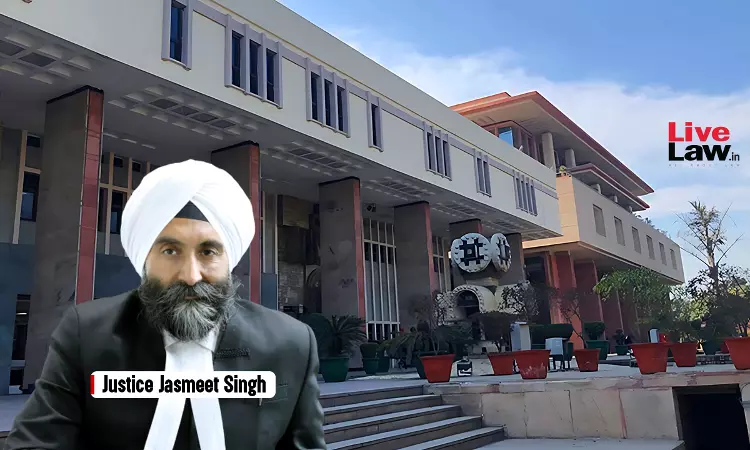- Home
- /
- High Courts
- /
- Delhi High Court
- /
- Long Term Consensual Physical...
Long Term Consensual Physical Relationship Doesn't Mean Consent Was Purely Based On Promise To Marry: Delhi HC Sets Aside Rape Conviction
Nupur Thapliyal
3 March 2025 10:30 AM IST
The Delhi High Court has recently said that if a consensual physical relationship continues for a long period, it cannot be said that the woman's consent was purely based on the promise to marry.Justice Jasmeet Singh observed that for convicting a person for the offence of rape on false pretext of marriage, there must be a clinching and clear evidence that physical relations were established...
The Delhi High Court has recently said that if a consensual physical relationship continues for a long period, it cannot be said that the woman's consent was purely based on the promise to marry.
Justice Jasmeet Singh observed that for convicting a person for the offence of rape on false pretext of marriage, there must be a clinching and clear evidence that physical relations were established only on the basis of promise to marry which was never intended to be kept.
The Court made the observations while setting aside the conviction and order of sentence of a man in a rape case.
He was convicted under Section 366 (kidnapping, abducting or inducing woman to compel her marriage) and 376 (rape) of Indian Penal Code, 1860, and was sentenced to 10 years of rigorous imprisonment.
The FIR was registered by the woman's father alleging that his 20 year old daughter was missing and had gone with the appellant who was aged about 18 and a half years. They both were found in Haryana and the appellant was arrested.
It was the appellant's case that it was a case of consensual physical relations based out of love and affection and there was no criminality involved.
On the other hand, the prosecution supported the conviction order and said that the testimony of the prosecutrix was clear and the Trial Court had correctly appreciated the evidence placed on record.
Justice Singh ruled that if there is a promise to marry and the said promise is given in bad faith, and the women on the pretext of this promise gives her consent to engage in a sexual act, then the consent will not be a valid consent attracting the rigors of rape offence.
“In cases of breach of promise to marry, if said promise was made in good faith but subsequently, due to certain unforeseen circumstances or the circumstances beyond control, the said promise could not be fulfilled, it cannot be termed as false promise to marry and be a reason to prosecute a person for the offence under Section 376,” the Court said.
It added: “Also, it is to be noted that if there is consensual physical relationship continues for over a substantial/long/extended period, it cannot be said that the consent was purely based on the promise to marry.”
It cited Mahesh Damu Khare v. State of Maharashtra (2024) where the Supreme Court expressed concerns about the "worrying trend" of invoking criminal law against men on allegations of rape on the false pretext of marriage after a long consensual relationship turned sour.
The Court concluded that the prosecutrix and the appellant were in love with each other and that she gave her consent for marriage and subsequently, they entered into a physical relationship.
It added that there was no evidence led by the prosecution to show that the appellant did not intend to marry the prosecutrix or refused to marry ber.
“The marriage for whatever reason could not happen between the appellant and the prosecutrix but it cannot be said that physical relations were established on account of a false promise to marry,” the Court said.
Ordering the appellant's release, the Court directed that he shall ensure that neither he nor any person of his family shall interfere in the life of the prosecutrix or any of her family members or get in touch with her through any mode, be it WhatsApp, mobile or in any manner.
Title: SHIVAM PANDEY v. STATE
Citation: 2025 LiveLaw (Del) 254



